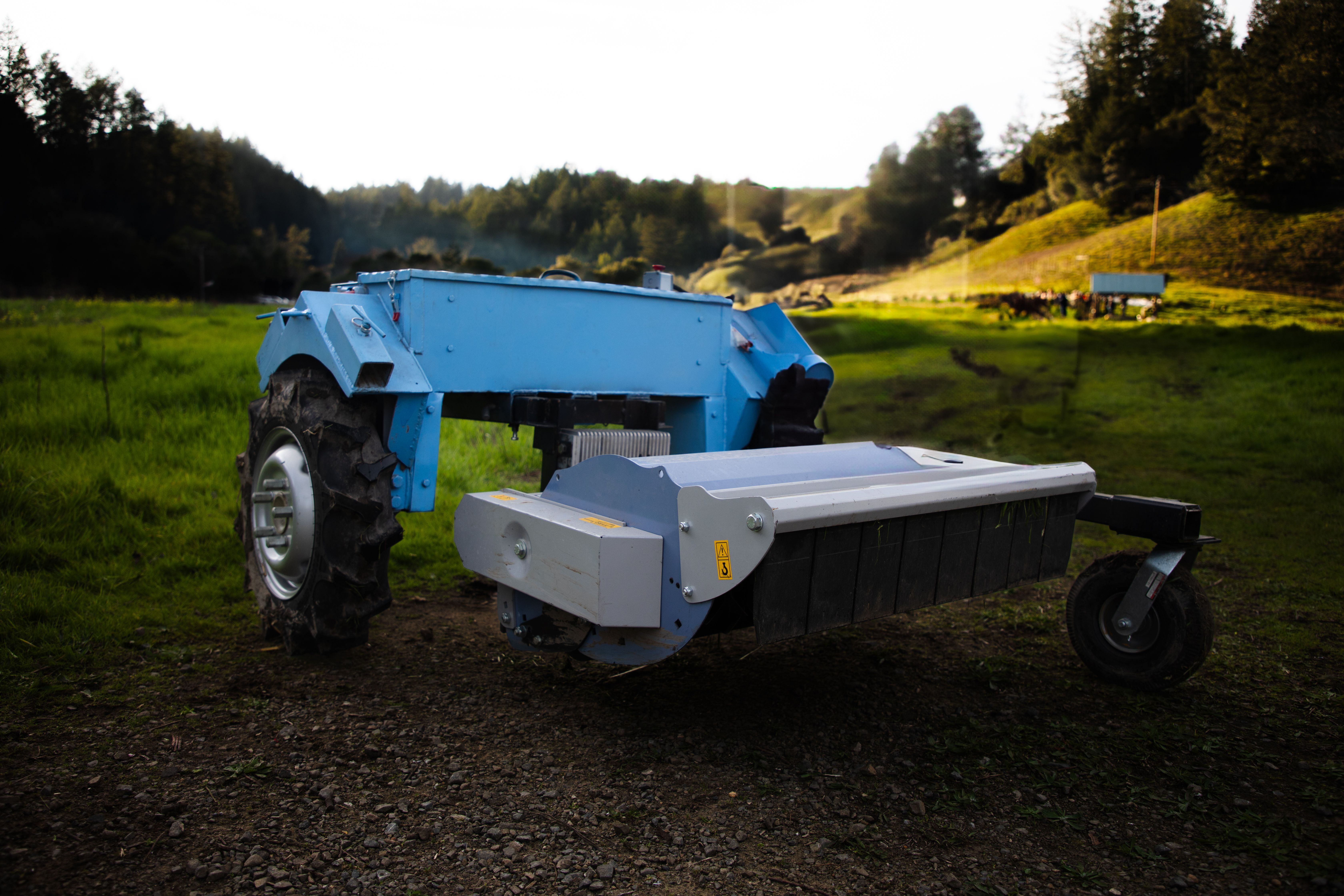Introducing Electric Tractors: A Greener Alternative
Electric tractors are revolutionizing farming by providing a cleaner, more sustainable alternative to traditional diesel-powered machinery. Powered entirely by electricity, these tractors reduce the need for fossil fuels, cut harmful emissions, and offer a quieter, more efficient solution for farmers.
The Urgent Need for Sustainable Farming Solutions
With growing concerns about climate change and environmental degradation, the agricultural industry faces increasing pressure to adopt more sustainable practices. Electric tractors are an essential part of this transition, helping farmers reduce their environmental impact while maintaining productivity.
How Electric Tractors Are Shaping the Future of Agriculture
In this post, we’ll explore how electric tractors are transforming the farming landscape. From cost savings to lower carbon footprints, these machines are helping farmers increase efficiency while contributing to a more sustainable future.
Read on to discover how electric tractors are transforming farming and boosting sustainability.
What Are Electric Tractors?
Electric tractors are a new breed of farming equipment powered entirely by electricity, offering an eco-friendly alternative to traditional diesel-powered tractors. Instead of relying on fossil fuels, electric tractors use batteries to store and supply energy to electric motors, which in turn power the tractor’s movement and operations.
How Do They Differ from Diesel-Powered Tractors?
Unlike diesel tractors, which rely on combustion engines and produce emissions, electric tractors are zero-emission vehicles. They run on electricity, making them much cleaner and quieter, with significantly lower environmental impact. Additionally, electric tractors offer reduced maintenance costs since they have fewer moving parts compared to traditional diesel engines.
Components of an Electric Tractor
Electric tractors consist of three main components
- Batteries: These high-capacity batteries store the electrical energy needed to power the tractor. They are rechargeable and can last for a full day of work depending on the model and tasks being performed.
- Motors: The electric motor converts electrical energy into mechanical energy, driving the tractor’s wheels and enabling it to perform farm tasks.
- Charging Systems: Electric tractors can often be charged using existing farm outlets like RV or welding plug receptacles. These simple setups make on-site recharging easy and cost-effective.
Tasks Electric Tractors Are Used For on Farms
Electric tractors are versatile and can be used for a variety of farming tasks such as:
- Tilling: Breaking up soil for planting.
- Hauling: Transporting materials like hay or equipment.
- Mowing: Cutting grass or crops.
- Plowing: Preparing fields for planting.
These tasks can be performed efficiently with electric tractors, providing farmers with a cleaner, quieter, and cost-effective alternative to traditional machines.
- Electric vs Diesel Tractors
- Electric Tractor Models
Learn more about how electric tractors are the future of sustainable farming.
Key Benefits of Electric Tractors
Electric tractors are revolutionizing the way we farm, offering numerous advantages over traditional diesel-powered machines. Here’s why electric tractors are quickly becoming a preferred choice for modern, sustainable agriculture.
Cost Savings
One of the biggest benefits of electric tractors is the significant cost savings they offer. Unlike diesel tractors, which require frequent refueling with expensive fuel, electric tractors are powered by electricity, which tends to be much cheaper in the long run. Additionally, electric tractors have fewer moving parts than their diesel counterparts, leading to reduced maintenance costs. With no need for oil changes, fewer engine repairs, and reduced wear and tear, farmers can save significantly on upkeep and repairs.
Eco-Friendly
Electric tractors are a zero-emission solution, making them a far more environmentally friendly option compared to diesel tractors. With the growing concern about greenhouse gas emissions and climate change, electric tractors play a vital role in reducing a farm’s carbon footprint. They help in achieving sustainable farming practices by reducing air pollution and greenhouse gas emissions, contributing to cleaner air and a healthier environment.
Now read more about Pilot program
Efficiency
Electric tractors offer higher operational efficiency than traditional tractors. These tractors use advanced technology to convert energy into power more efficiently, resulting in lower energy consumption for the same tasks. This means farmers can get more work done with less energy, further reducing operating costs and increasing productivity. Additionally, electric tractors can be charged at times when electricity demand is lower, making use of off-peak energy to reduce costs even further.
Noise Reduction
Electric tractors are much quieter compared to diesel models. This noise reduction is not only beneficial for the workers operating the machinery but also for the surrounding environment. Quieter operations mean less noise pollution for nearby communities, wildlife, and other farm workers. This can contribute to a more pleasant working environment, especially in noise-sensitive areas like residential farming communities.
Better for Soil Health
Electric tractors support soil health by producing zero emissions, which helps preserve beneficial microorganisms in the soil.
Electric Tractor Charging Infrastructure
Explore the environmental and financial benefits of making the switch to electric tractors.
How Electric Tractors Are Changing Sustainable Farming
Electric tractors are playing a transformative role in the movement toward sustainable farming. These machines are not just an alternative to diesel-powered tractors—they are actively shaping the future of agriculture by offering a cleaner, more efficient, and environmentally friendly way to farm.
Reducing Greenhouse Gas Emissions in Agriculture
One of the most significant contributions of electric tractors is their ability to reduce greenhouse gas emissions. Traditional diesel-powered tractors produce harmful emissions that contribute to air pollution and climate change. Electric tractors, on the other hand, operate with zero emissions, making them a crucial part of reducing agriculture's carbon footprint. By adopting electric tractors, farmers can significantly lower their greenhouse gas emissions, helping to meet sustainability goals and regulatory requirements.
Supporting Organic and Sustainable Farming Practices
Electric tractors support organic and sustainable farming practices by using clean, renewable energy. Many farms that focus on organic agriculture are already committed to reducing their environmental impact, and electric tractors align perfectly with this ethos. These machines help reduce reliance on fossil fuels, support clean energy integration, and minimize the environmental damage associated with conventional farming equipment. They also improve soil health by reducing soil compaction, which is especially important for organic farming practices that rely on healthy, fertile soil.
Find out how your farm can benefit from adopting electric tractors for sustainability.
Electric Tractors vs Diesel Tractors: Which is Right for Your Farm?
When deciding between electric and diesel tractors, it’s important to consider several factors that affect both the short-term and long-term efficiency of your farm. Both options offer distinct advantages, but the best choice depends on your specific needs, budget, and sustainability goals.
Cost Comparison: Initial Investment vs Long-Term Savings
One of the first things farmers often consider is the cost. Electric tractors typically come with a higher initial investment compared to their diesel counterparts. However, they offer significant long-term savings. Electric tractors require much less fuel, as electricity is generally cheaper than diesel. Additionally, they have fewer moving parts, which means less maintenance and fewer repairs over time, lowering the total cost of ownership. In contrast, diesel tractors, while cheaper upfront, incur ongoing fuel costs and higher maintenance expenses due to the complexity of their internal combustion engines.
Performance: Power, Torque, and Efficiency Differences
In terms of performance, both electric and diesel tractors offer sufficient power for various farm tasks. However, electric tractors are more efficient at converting energy into work, meaning they often provide better torque at lower speeds, which is especially useful for tasks like plowing and tilling. Diesel tractors, on the other hand, have the advantage of sustained power over longer periods of use, which may be preferred for larger-scale operations or more demanding tasks.
Electric tractors may require more frequent recharging depending on workload and battery size. However, many models now offer exchangeable battery packs, allowing operators to quickly swap batteries and extend runtime without waiting for a full recharge. This helps bridge the gap with diesel tractors, which traditionally run longer on a single tank.
Maintenance: Ease of Upkeep for Electric vs Diesel Models
When it comes to maintenance, electric tractors have a distinct edge. Their simpler electric motors and lack of a combustion engine mean fewer components that can break or require regular servicing. Electric tractors don’t need oil changes, and they typically require less frequent servicing compared to diesel models. Diesel tractors, on the other hand, require regular oil changes, air filter replacements, and other maintenance tasks to keep the engine running smoothly.
Sustainability: Environmental Impact of Both Options
Sustainability is where electric tractors really shine. As zero-emission machines, they are much cleaner than diesel tractors, which emit carbon dioxide and other pollutants into the air. Electric tractors help reduce greenhouse gas emissions, contributing to cleaner air and healthier ecosystems. Diesel tractors, while efficient, continue to have a negative environmental impact due to their reliance on fossil fuels. If sustainability is a key factor for your farm, an electric tractor is the superior choice.
Need help choosing? Contact us for a consultation to find the best tractor for your farm.
How to Charge and Maintain Electric Tractors
To ensure your electric tractor operates at its best, it’s important to understand the basics of charging and maintenance. Here’s a guide to help you get the most out of your electric tractor.
Charging Methods: Types of Chargers
Electric tractors require charging just like any electric vehicle. There are three primary types of chargers you’ll encounter:
Level 1 Charging: This is the slowest method, typically using a standard 120V outlet. It’s best for small, light-duty tasks, but it may take a long time to charge your tractor fully.
- Level 2 Charging: A faster option that uses a 240V outlet, commonly found in homes or garages. Level 2 chargers provide a good balance between charging speed and energy efficiency.
- Fast Charging: This is the fastest charging option, utilizing DC fast chargers that can charge an electric tractor up to 80% in a short amount of time. It’s ideal for farms that need quick turnaround times but requires a higher upfront investment.
Charging Infrastructure: Setting Up a Charging Station
To keep your electric tractor running smoothly, a reliable charging setup is essential. Most farms install Level 2 charging stations for a balance of speed and cost. Additionally, some electric tractors can be charged using on-site solar arrays, offering a sustainable and energy-efficient option that reduces reliance on the grid.
Ensure that the location of your charging stations is convenient for your farm layout, and that they have access to consistent electricity supply.
Electric Tractor Charging Infrastructure
Maintenance Needs: Battery Care, Motor Maintenance, Software Updates
Electric tractors are known for their low maintenance needs, but they still require some attention:
- Battery Care: It’s important to charge your tractor properly and avoid letting the battery run down completely. Regularly check the battery’s health and follow the manufacturer’s guidelines to maximize its lifespan.
- Motor Maintenance: Electric motors generally require very little maintenance compared to diesel engines. However, regular checks for wear and tear, particularly on the brushes and bearings, are still necessary.
- Software Updates: Many modern electric tractors have software that controls various functions. Regular software updates can optimize performance and ensure the tractor operates efficiently.
Costs: Initial Costs of Charging Setup vs Ongoing Energy Costs
While the initial cost of setting up a charging station on your farm can vary based on the type of chargers and infrastructure required, the ongoing energy costs tend to be much lower than refueling a diesel tractor. Electricity is generally less expensive than diesel, and electric tractors are more energy-efficient, which translates into cost savings over time.



